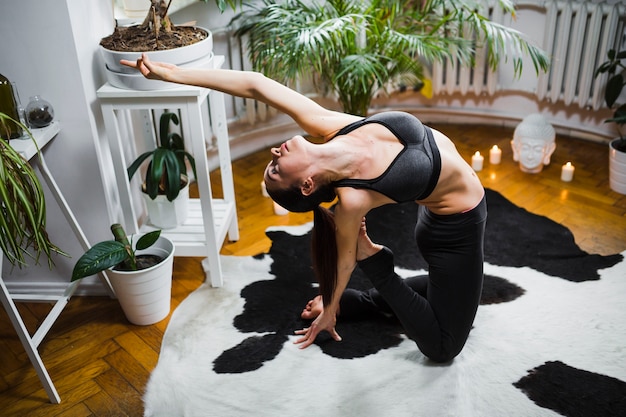
Yoga isn’t just about flexibility; it has benefits for memory, heart health, and bone strength. In the UK, people spend an impressive £790 million annually on yoga classes and equipment. While some unusual forms of yoga, like rage or naked yoga and even sessions on paddle boards or horseback exist, science increasingly supports yoga’s real benefits.
Researchers at UCLA discovered that a three-month yoga and meditation program was more effective than memory exercises at reducing age-related brain decline. It also improved sleep for breast cancer survivors. When Lucy Edge, a former advertising executive, battled depression, she chose yoga over medication. After six months in India learning yoga, she returned feeling happier and more content, leading her to write books and create Yoga Meds to share yoga’s benefits.
Yoga offers health benefits that extend beyond just memory. If your mental exercises have been limited to Sudoku, consider adding yoga to your routine. A study involved brain scans and memory tests on adults over 55, comparing memory exercises to 12 weeks of yoga and meditation. The yoga group showed more significant improvements in spatial and visual memory, reduced depression and anxiety, and better stress resilience. This study suggests more research is needed on yoga’s potential to keep our hearts and brains healthy as we age.
For heart health, yoga might be just as effective as brisk walking. A 2014 review indicated yoga could lower heart disease risk. Since stress contributes to heart disease, and yoga helps manage stress, it’s beneficial. Dr. Mike Knapton from the British Heart Foundation sees yoga offering emotional health benefits, especially for anxiety and depression, which often accompany cardiac issues. It also improves blood pressure, cholesterol, and weight.
Charlotte Watts, a yoga teacher and nutritional therapist, recommends a series of gentle poses for stress reduction, perfect for beginners. Anna Ashby from Triyoga Studios suggests Restorative yoga, where supported postures promote relaxation. Musculoskeletal physiotherapist Sarah Shone found yoga classes she developed reduced back pain for 87% of participants. Yoga is also beneficial for incontinence and can improve bone density. For beginners, choosing gentle styles like Hatha or Iyengar is advised. Consult your doctor for a possible subsidized yoga course if you have a specific condition like back pain.
Using the right props can enhance your yoga experience. Consider where you plan to use your yoga mat and how often you’ll need to carry it. The mat’s thickness is crucial for joint protection, especially if you experience knee or wrist pain. Investing in a thicker mat is beneficial. Healthista recommends the Elephant Cork Yoga Mat from Valka Yoga for its eco-friendly design, durability, and comfort. Cork provides excellent grip, especially when wet, and is antimicrobial and odor resistant—a great choice for hot yoga. The mat also comes with a carry strap and warranty.
Adding a cork yoga block, like Valka’s matching elephant design block, can make challenging poses more accessible. Although heavier than foam, cork blocks offer better stability and grip. Whether you’re flexible or not, yoga will help. Options include Yin or Restorative classes for relaxation, Vinyasa Flow for an energetic practice, Iyengar for precision and alignment, Anusara for dynamic movements, and Yoga Therapy for healing specific injuries or illnesses.